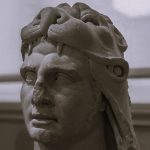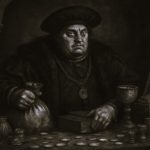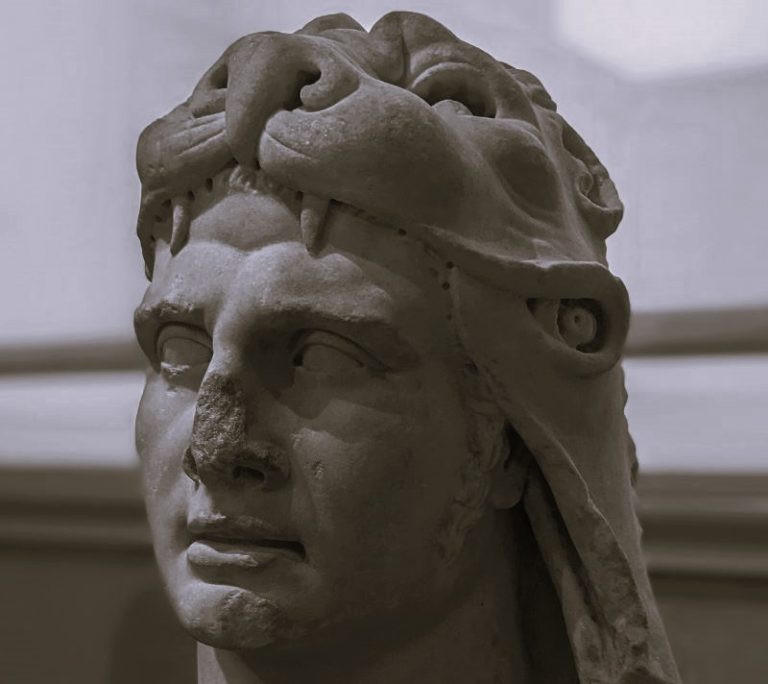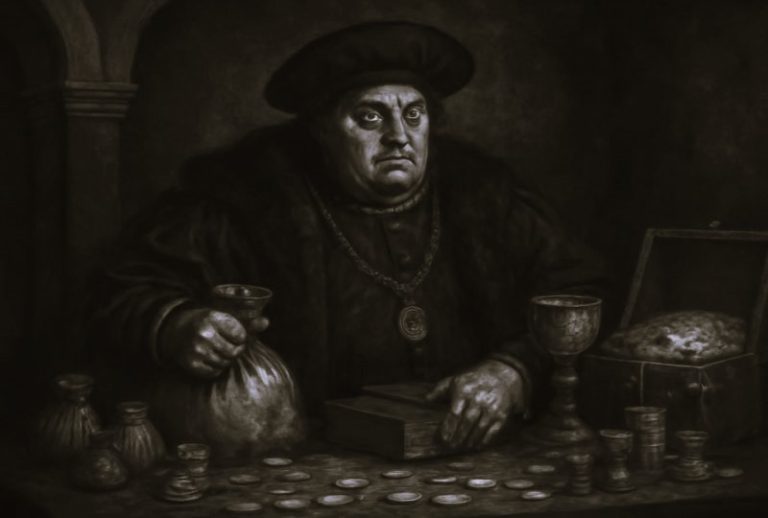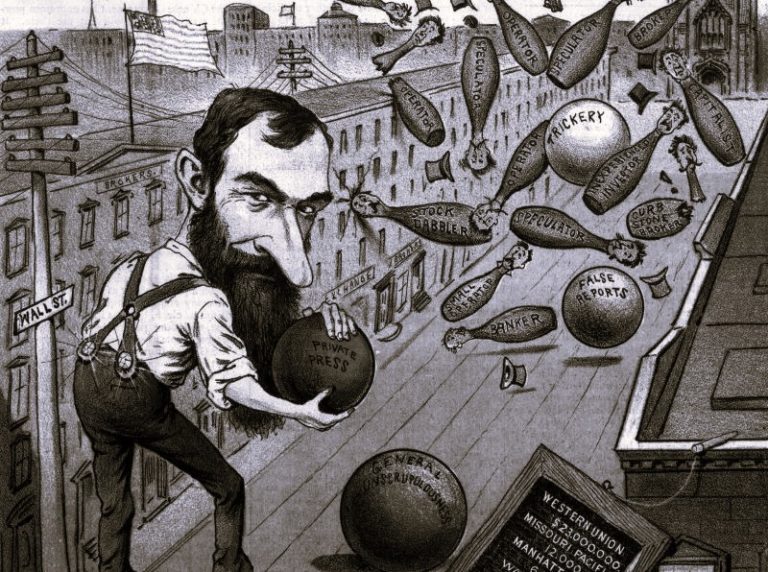

By Dr. Alan Forrest
Professor Emeritus of Modern History
University of York
Napoleon has long enjoyed a stellar reputation as a field commander – his capacities as a military strategist, his ability to read a battle, the painstaking detail with which he made sure that he cold muster a larger force than his adversary or took maximum advantage of the lie of the land – these are stuff of the military legend that has built up around him. It is not without its critics, of course, especially among those who have worked intensively on the later imperial campaigns, in the Peninsula, in Russia, or in the final days of the Empire at Waterloo.
Doubts about his judgment, and allegations of rashness, have been raised in the context of some of his victories, too, most notably, perhaps, at Marengo. But overall his reputation remains largely intact, and his military campaigns have been taught in the curricula of military academies from Saint-Cyr to West Point, alongside such great tacticians as Alexander the Great and Hannibal. Historians may query his own immodest opinion that his presence on the battlefield was worth an extra forty thousand men to his cause, but it is clear that when he was not present (as he was not for most of the campaign in Spain) the French were wont to struggle. Napoleon understood the value of speed and surprise, but also of structures and loyalties. He reformed the army by introducing the corps system, and he understood military aspirations, rewarding his men with medals and honours; all of which helped ensure that he commanded exceptional levels of personal loyalty from his troops.
But he was not only a military man with an understanding of military culture. He thought not only as a military strategist but as a political leader, who, whether as First Consul or Emperor or even as the general in charge of the Army of Italy under the Directory, when he had no political authority but the power that derived from military supremacy, did not hesitate to seize political initiatives, crisply and incisively, and to drive home his advantage. And though some will argue that his Empire could not survive without continued military expansion, and his thirst for conquest often did seem unquenchable, it is significant that he never allowed the army to assume political control, either in France or in any of the lands he conquered. He had read widely in the classics and in history; if he had a hero, a man whose concept of Empire underlay his every move, it was Charlemagne, and the zenith of his power involved the imposition on Europe of his new continental empire with the medieval kingdom of Lotharingia at its core, to the detriment of Austria and a Holy Roman Empire that had lasted for a thousand years before its abolition in 1806.
It was a European vision, not (like Britain’s) a colonial vision that straddled the globe; a transnational, continental empire of Dutch and Italians, Germans and Poles; and by the middle imperial years his wars were fought by armies composed of troops from all these countries. His ambitions against Iberia and Russia stretched that empire, and its resources, to unbearable lengths. But the goal, nothing short of uniting a continent under a common system of administration and justice, was breath-taking, and it has led some historians to suggest that this was a unification project that heralded the leap in imagination of a Jean Monnet or a Robert Schuman after the Second World War. That may be whimsical. Indeed, it may be tempting to ask if the modern world can learn anything of value from a historical experiment that belongs to a world we have lost, when the battlefield still involved hand-to-hand combat and artillery shells represented the most deadly and impersonal from of death in action. Developments in technology and military hardware mean that much of the experience of the Napoleonic Wars, and the values they inculcated, seem to have less relevance; wars are fought more impersonally, and death is often more industrial, both in the numbers killed and in the forms it took. Even fifty years after Waterloo, indeed, the attempt to replicate the Napoleonic battlefield, using the more potent and murderous muskets of the day, wrought havoc on the soldiers of the Civil Win the United States, with horrific consequences and sobering casualty rates. Napoleon’s legacy, I would suggest, should be understood more in terms of his political ambitions, his commitment to certain political ideals, and his insatiable dream of empire. They, as much as fading memories of glory on the battlefield, explain the potency of his legend, in France and beyond – a dream of exercising power, of course, and domination; but just as much, a dream of providing stability and civic order that found an echo among at least some of the elites of Europe.

I do not mean to suggest that across Europe local people welcomed his invading armies or looked to him to save them from despotic rulers. That would be absurd, even if, as during the 1790s, there were in virtually every European state small numbers of educated, often enlightened men who did look to the French to bring a new system of justice, new ideas of efficient government, or a release from autocratic rule. Napoleon did not promise democracy, of course, though we should not exaggerate democracy’s appeal to a Europe craving peace and order and generally with no experience of the suffrage. But he did bring what for many Europeans, subject to absolute rule, aristocratic privilege and feudal law, could seem like real progress. For wherever the French went, they brought with them the benefits of their experience, the constitutional and legal reforms that had been won under the Revolution. They also brought the Code and a new system of law. Those territories close to the French frontier usually found themselves annexed and converted into departments on the French model; the practice had already begun under the Directory with the creation of sister-republics, in Holland, for example, or Switzerland, Further away from their own frontiers, the French set up client states, aligned to Paris in war and forged into military alliances, but with local people entrusted with government and the administration of justice, their princes and electors sometimes bribed to cooperate by elevation to full kingship, as in Bavaria or Württemberg. The people of these countries might enjoy new benefits, too: they were given equal access to administration, and to justice, and to the professions, regardless of their social origins or religious affiliation. States also found themselves better governed, with more professional standards of bureaucracy, less corruption, more efficiency. Even after 1815, when the Napoleonic political system was dismantled, some, like Milan, preferred to maintain his reforms in matters of justice and governance.
Of course, not all would avow their gratitude, and with good reason. The Napoleonic state expected taxes, and requisitions, and conscripts, and these were demands that aroused anger and resistance. And after 1803, when war resumed after the Peace of Amiens, these demands became ever-more uncompromising. Agriculture was pillaged for the war effort, grain seized as requisitions and cattle driven across Europe to feed the troops and the cities. Money was demanded in tribute and art treasures seized from princely collections. Rulers and ministers were replaced where they did not fulfil French expectations, and around the Mediterranean, where the local elites were not trusted by Paris to exercise professionalism without bribes or favours, they were quite summarily replaced by Frenchmen. It was hard to avoid the impression that other Europeans were being judged, assessed as surrogate Frenchmen, that the Empire had something of the colonial about it. Such feelings of course aroused resentments and recrimination, and many of those who served the Empire, whether as kings or dukes or ministers, did so only when they had no choice, when Napoleon’s military dominance was unassailable. By 1813, following major reverses in Spain and Russia, they often plucked up the courage to revolt, and were to be a major element in Napoleon’s final collapse.
The Empire offered good administration and generally efficient government to a Europe where neither could be taken for granted. It brought individual human rights, destroyed feudalism, and guaranteed equality before the law. It imposed more efficient, if more repressive, policing that helped to curb armed robbery and brigandage. But it did not bring the peace which Europe craved, and, as the French would discover to their cost, the by-products of Napoleon’s unending wars – taxes, requisitions, conscription, the endless intrusion of the state into the affairs of local communities – guaranteed that there would be no internal peace, either. War brought surges in crime and tax-evasion, draft-dodging and corruption, while Napoleon’s near-obsessive pursuit of his most persistent adversary, Britain, led to blockade and the imposition of the Continental System, which for many meant distortion of trade and economic disruption. Discontent, riot and insurrection often followed. As the conflict dragged on, and coalition followed coalition against Napoleon, even in France itself the population wanted peace, not victory. The benefits of French rule, where there were benefits – and in some theatres of the conflict, like Spain, Portugal or Russia, the people were visited by the miseries and cruelties of war without becoming integrated into the Empire or having the opportunity to discover what it meant. There they were fighting less against a system or a politics than against an invader, an invader whom their own rulers presented to them as a tyrant and usurper. As we have discovered more recently in Iraq, few appreciate regime change when it is imposed from outside, or liberty dictated at the end of a bayonet.
Napoleon was, of course, no libertarian, and no pluralist. He would tolerate no opposition to his rule, and though it was politicians and civilians who imposed his reforms, the army was never far behind. But comparisons with twentieth-century dictators are well wide of the mark. While he insisted on obedience from those he administered, his ideology was based not on division or hatred, but on administrative efficiency and submission to the law. And the state he believed in remained stubbornly secular. In Catholic southern Europe, of course, that was not an approach with which it was easy to acquiesce; and disorder, insurgency and partisan attacks can all be counted among the results. But these were principles on which the Emperor would not and could not give ground. If he had beliefs they were not religious or spiritual beliefs, but the secular creed of a man who never forgot that he owed both his military career and his meteoric political rise to the French Revolution, and who never quite abandoned, amidst the monarchical symbolism and the court pomp of the Empire, the republican dreams of his youth. When he claimed, somewhat ambiguously, after the coup of 18 Brumaire that `the Revolution was over’, he almost certainly meant that the principles of 1789 had at last been consummated, and that the continuous cycle of violence of the 1790s could therefore come to an end. When the Empire was declared in 1804, the wording, again, might seem curious, the French being informed that the `Republic would henceforth be ruled by an Emperor’. Napoleon might be a dictator, but a part at least of him remained a son of the Enlightenment.
Originally published by openDemocracy, 06.01.2010, under a Creative Commons Attribution-NonCommercial 4.0 International licence.

